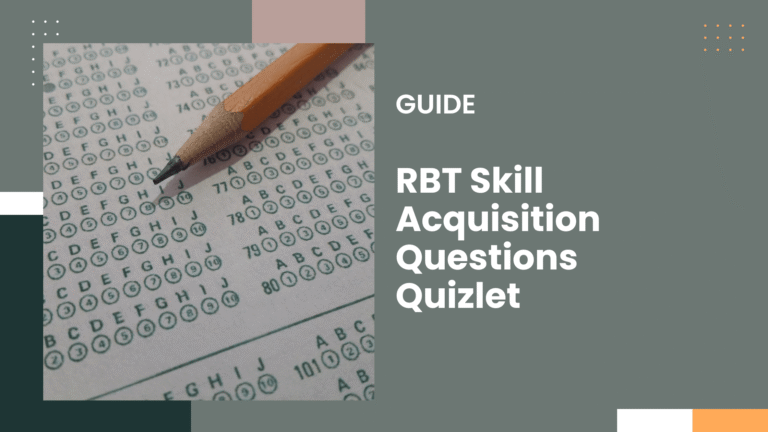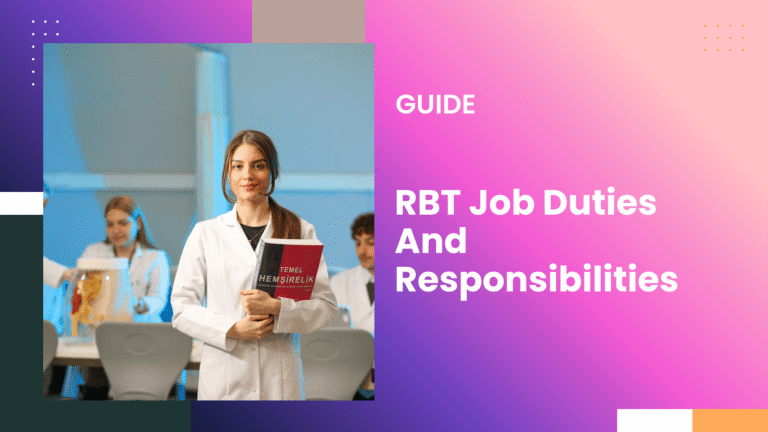RBT Vocabulary PDF Free Download: Glossary & Terms Printable
Download your free RBT Vocabulary PDF Printable now. RBT Terms and Definitions Free & boost your confidence for the exam with this must-have study tool.
RBT Terms and Definitions Printable Free
I have compiled a few of the newest Vocabulary/ Glossary words in this PDF, along with some from the web, researched. You can use these sources as your go-to for your preparation.
In this exam, it is not about just memorising it, but rather understanding and knowing how to apply the knowledge from your study.
So, each terms mean different and will matters a lot. You must understand each term carefully as there are a few terms in RBT vocabulary that are similar and can be mistaken for each other.
Reinforcement vs. Reward
In normal situation, you can look at these two words and not be confused, but in Applied Behavior Analysis (ABA), they’re not the same.
Reinforcement
- Definition: A consequence that increases the future likelihood of a behavior.
- Key Point: It’s based on the effect it has on behavior, not whether it’s “nice” or “intended as a reward.”
- Example: A child is given a break from work (removal of demand) after screaming. So, if the child screams more in the future, the break functioned as negative reinforcement.
Reward
- Definition: Something intended to be pleasant or desirable.
- Key Point: It may not actually change behavior — so it might not be reinforcement.
- Example: A teacher gives a sticker for completing a task, but if the student doesn’t do more tasks in the future, the sticker was just a reward, not reinforcement.
There is a critical distinction in ABA and Many assume reinforcement and reward are interchangeable, but reinforcement is based on observable outcomes, while rewards are based on intent.
So, you need to know all these from a ABA point of view and not just normal situations as they are usually interchangeably used sometimes.
RBT Vocabulary Terms
1. Behavioral Cusp: A behavior that opens access to new reinforcers, environments, or learning opportunities.
2. Stimulus Equivalence: Learner demonstrates untrained relations between stimuli (if A=B and B=C, then A=C).
3. Functional Communication Training (FCT): Teaches appropriate communicative alternatives to problem behaviors.
4. Behavioral Momentum: Persistence of behavior following reinforcement of high-probability responses.
5. Preference Hierarchy: Ranking reinforcers from most to least preferred.
6. Task Interspersal: Mixing difficult tasks with easier ones to increase motivation and decrease frustration.
7. Stimulus Generalization: Behavior occurs under conditions similar (but not identical) to training.
8. Response Generalization: Learner uses variations of a behavior that produce the same outcome.
9. Rule-Governed Behavior: Behavior controlled by a verbal or mental rule, not direct contact with consequences.
10. Contingency Contract: A written agreement defining the behavior to be performed and the consequences delivered.
11. Premack Principle: A more probable behavior can reinforce a less probable behavior.
12. Matching Law: Rate of behavior matches the rate of reinforcement for that behavior.
13. Motivating Operation (MO): Changes a reinforcer’s value and alters the frequency of behaviors reinforced by it.
14. Transitive Conditioned Motivating Operation (CMO-T): A stimulus that makes something else effective as reinforcement.
15. Surrogate CMO (CMO-S): Acquires motivating effects through pairing with another motivating operation.
16. Reflexive CMO (CMO-R): Signals worsening or improvement of conditions, altering behavior accordingly.
17. Behavior Chain Interruption Strategy (BCIS): Breaking a learned sequence to encourage communication or alternative behavior.
18. Schedule Thinning: Gradually increasing reinforcement criteria to maintain behavior with fewer reinforcers.
19. Functional Behavior Assessment (FBA): Identifies antecedents and consequences that maintain problem behavior.
20. Treatment Integrity: How closely an intervention is implemented as planned.
21. Response Cost: Loss of a reinforcer contingent on problem behavior.
22. Restitutional Overcorrection: Repairing the damage caused by the behavior, plus improving the environment.
23. Positive Practice Overcorrection: Repeatedly practicing the correct form of behavior following an error.
24. Differential Reinforcement of Diminishing Rates (DRD): Reinforcement provided when behavior occurs at progressively lower rates.
25. DRO Resetting: The Timer restarts if problem behavior occurs during interval.
26. DRO Interval: Reinforcement delivered for the absence of behavior in a set interval.
27. Chained Schedule: Two or more basic schedules presented in sequence, each with its own SD.
28. Tact Extension: Generalizing a tact (label) to similar but novel stimuli.
29. Echoic Prompt: Prompting by repeating the correct answer verbally.
30. Massed Trials: Repeating the same teaching trial in quick succession.
31. Interobserver Agreement (IOA): The extent to which two or more observers report the same observed values.
32. Treatment Drift: Changes to an intervention over time that reduce its fidelity.
33. Social Validity: How acceptable, relevant, and useful an intervention is judged by stakeholders.
34. Conditioned Punisher: A Previously neutral stimulus that decreases behavior due to pairing with a punisher.
35. Unconditioned Punisher: A naturally aversive stimulus (e.g., pain, loud noise).
36. Establishing Operation (EO): Increases the value of a reinforcer and the frequency of behaviors that get it.
37. Abolishing Operation (AO): Decreases the value of a reinforcer and the frequency of behaviors that get it.
38. Behavioral Contrast: A change in responding in one context due to a change in reinforcement in another.






